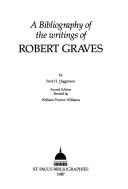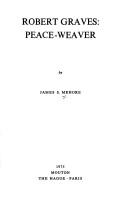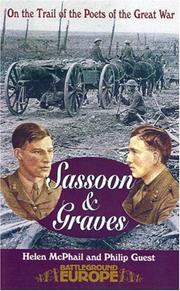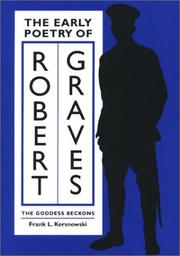| Listing 1 - 9 of 9 |
Sort by
|
Book
ISBN: 0821445421 9780821445426 9780821421857 0821421859 Year: 2016 Publisher: Athens, Ohio
Abstract | Keywords | Export | Availability | Bookmark
 Loading...
Loading...Choose an application
- Reference Manager
- EndNote
- RefWorks (Direct export to RefWorks)
"Before he joined the staff of Punch and designed its iconic front cover, illustrator Richard "Dicky" Doyle was a young man whose father (political caricaturist John Doyle) charged him with sending a weekly letter, even though they lived under the same roof. This volume collects the fifty-three illustrated missives in their entirety for the first time and provides an uncommon peek into the intimate but expansive observations of a precocious social commentator and artist. In a series of vivid manuscript canvases, Doyle observes Victorian customs and society. He visits operas, plays, and parades. He watches the queen visiting the House of Commons and witnesses the state funeral of the Duke of Sussex. He is caught up in the Chartist riots of August 1842 and is robbed during one of the melees. And he provides countless illustrations of ordinary people strolling in the streets and swarming the parks and picture galleries of the metropolis. The sketches offer a fresh perspective on major social and cultural events of London during the early 1840s by a keen observer not yet twenty years old. Doyle's epistles anticipate the modern comic strip and the graphic novel, especially in their experimentation with sequential narrative and their ingenious use of space. The letters are accompanied by a full biographical and critical introduction with new material about Doyle's life"--
Illustrators --- Artists --- Doyle, Richard, --- Doyle, John, --- H. B., --- B., H., --- Doyle, R. --- Kitcat, Dick, --- London (England)
Book
Year: 1926 Publisher: [Washington, D.C.] : [U.S. Government Printing Office],
Abstract | Keywords | Export | Availability | Bookmark
 Loading...
Loading...Choose an application
- Reference Manager
- EndNote
- RefWorks (Direct export to RefWorks)
Claims. --- Desertion, Military. --- Desertion, Naval. --- Legislative amendments. --- Doyle, John --- United States --- History
Book
ISBN: 0805030557 Year: 1995 Publisher: New York (N.Y.): Holt
Abstract | Keywords | Export | Availability | Bookmark
 Loading...
Loading...Choose an application
- Reference Manager
- EndNote
- RefWorks (Direct export to RefWorks)
Authors, English --- -English authors --- Biography --- Graves, Robert --- גרייבס, רוברט --- -Biography --- Graves, Robert, --- Ranke-Graves, Robert von, --- Von Ranke-Graves, Robert, --- Doyle, John, --- Грейвз, Роберт, --- גרייבס, רוברט, --- Rich, Barbara --- Graves, Robert Ranke
Book
ISBN: 1280394692 9786613572615 9401207364 9789401207362 9789042034501 9042034505 9781280394690 6613572616 Year: 2012 Publisher: Amsterdam New York Rodopi
Abstract | Keywords | Export | Availability | Bookmark
 Loading...
Loading...Choose an application
- Reference Manager
- EndNote
- RefWorks (Direct export to RefWorks)
Here is presented an existential view of Graves’ poetic, historical, and critical work, whose coherence is being emphasized. Graves’ poetic outlook is first of all ethical and his aesthetics are subservient to his aim of transforming the emotion into existential thought in order to live on, to probe the experience, and to give it its ontological resonance. The divine capacity is to be found within the individual soul. It is immanent but transcends the phenomenological world. Like Kierkegaard, the poet experiences a feeling of certainty when faith animates him. In the present moment, he gets glimpses of paradise – the plenitude of being. No clipped wings, no well polished discipline or well-behaved guidance. In Kierkegaard’s words, the poet’s sphere is not the universal, or general, but the religious, or individual, sphere – faith, not the concept; self-confidence, not conformity to any over-simplified logic. Graves’ stance is paradoxical throughout: he was not politically involved (except immediately after the war when he said he was a Socialist), but evinced some political ideas in his essays. He was not religious, but poetry took the place of religion for him. He evinced a very original poetic outlook, but kept within the limits of well-accepted prosody. He liked to provoke his audience, but his poetry is never provocative. In other words, it is not easy to situate Graves according to time-honoured categories. He is too much of an individual poet to stand general classification. Yet his poems have a direct appeal to the reading public. He is a poet of unrest. This volume is of interest for scholars and poetry readers who wish to renew their appreciation of poetry and go beyond nowadays critical standards through a careful reading of the very powerful thought of a major poet.
Criticism and interpretation. --- Graves, Robert, --- Graves, Robert Ranke --- Graves, Robert --- Ranke-Graves, Robert von, --- Von Ranke-Graves, Robert, --- Doyle, John, --- Poetic works. --- Грейвз, Роберт, --- גרייבס, רוברט --- גרייבס, רוברט, --- Rich, Barbara

ISBN: 0906795168 Year: 1987
Abstract | Keywords | Export | Availability | Bookmark
 Loading...
Loading...Choose an application
- Reference Manager
- EndNote
- RefWorks (Direct export to RefWorks)
012 GRAVES, ROBERT --- Bibliografie van bepaalde auteur--NAAM--GRAVES, ROBERT --- 012 GRAVES, ROBERT Bibliografie van bepaalde auteur--NAAM--GRAVES, ROBERT --- Graves, Robert, --- Ranke-Graves, Robert von, --- Von Ranke-Graves, Robert, --- Doyle, John, --- Грейвз, Роберт, --- גרייבס, רוברט --- גרייבס, רוברט, --- Rich, Barbara --- Graves (Robert). Bibliographie. --- Graves (Robert). Bibliografie. --- Graves, Robert Ranke --- Graves, Robert

ISBN: 9789027931948 9783110814903 3110814900 9027931941 Year: 2017 Publisher: Berlin/Boston De Gruyter, Inc.
Abstract | Keywords | Export | Availability | Bookmark
 Loading...
Loading...Choose an application
- Reference Manager
- EndNote
- RefWorks (Direct export to RefWorks)
Frieden. --- Poetik. --- Robert Graves. --- LITERARY CRITICISM / American / General. --- Graves, Robert, --- Ranke-Graves, Robert von, --- Von Ranke-Graves, Robert, --- Doyle, John, --- Грейвз, Роберт, --- גרייבס, רוברט --- גרייבס, רוברט, --- Rich, Barbara --- Criticism and interpretation. --- Graves, Robert, - 1895-1985 - Criticism and interpretation --- Graves, Robert, - 1895-1985
Book
ISBN: 9780773589247 0773589244 0773589236 9780773589230 9780773542112 0773542116 Year: 2013 Publisher: Montreal [Quebec] Beaconsfield, Quebec
Abstract | Keywords | Export | Availability | Bookmark
 Loading...
Loading...Choose an application
- Reference Manager
- EndNote
- RefWorks (Direct export to RefWorks)
Amid competing claims about who first developed the theories and practices that became known as New Criticism - the critical method that rose alongside Modernism - literary historians have generally given the lion's share of credit to William Empson and I.A. Richards. In The Birth of New Criticism Donald Childs challenges this consensus and provides a new and authoritative narrative of the movement's origins. At the centre stand Robert Graves and Laura Riding, two poet-critics who have been written out of the history of New Criticism. Childs brings to light the long-forgotten early criticism of Graves to detail the ways in which his interpretive methods and ideas evolved into the practice of "close reading," demonstrating that Graves played such a fundamental part in forming both Empson's and Richards's critical thinking that the story of twentieth-century literary criticism must be re-evaluated and re-told. Childs also examines the important influence that Riding's work had on Graves, Empson, and Richards, establishing the importance of this long-neglected thinker and critic. A provocative and cogently argued work, The Birth of New Criticism is both an important intellectual history of the movement and a sharply observed account of the cultural politics of its beginnings and legacy.
New Criticism --- Criticism --- History. --- Empson, William, --- Richards, I. A. --- Riding, Laura, --- Graves, Robert, --- Graves, Robert Ranke --- Graves, Robert --- Jackson, Laura (Riding), --- Richards, Ivor Armstrong, --- Rītshārdz, A., --- Criticism and interpretation. --- Ranke-Graves, Robert von, --- Von Ranke-Graves, Robert, --- Doyle, John, --- Грейвз, Роберт, --- גרייבס, רוברט --- גרייבס, רוברט, --- Rich, Barbara

ISBN: 1473814715 1783835397 9781473814714 1306863562 9781306863568 9781783835393 0850528380 9780850528381 Year: 2001 Publisher: Barnsley, South Yorkshire
Abstract | Keywords | Export | Availability | Bookmark
 Loading...
Loading...Choose an application
- Reference Manager
- EndNote
- RefWorks (Direct export to RefWorks)
The war memoirs of these two officers with the Royal Welsh Fusiliers have never been out of print since their first publication. Both men won instant and enduring fame with these very different narratives, which made them two of the most influential participants in shaping later attitudes to the war. Graves gave offence in many quarters with his factual inaccuracies and/or slurs on various units of the British Army. Sassoon's nostalgic evocation of his cricketing and fox-hunting background contrast with the detailed narrative of personalities and life in the Battle of the Somme and the Battle
Poets, English --- World War, 1914-1918 --- Soldiers --- Literature and the war. --- Sassoon, Siegfried, --- Graves, Robert, --- Graves, Robert Ranke --- Graves, Robert --- Author of Memoirs of a fox-hunting man, --- Memoirs of a fox-hunting man, Author of, --- S. S. --- Kain, Saul, --- Lyre, Pinchbeck, --- Ranke-Graves, Robert von, --- Von Ranke-Graves, Robert, --- Doyle, John, --- Грейвз, Роберт, --- גרייבס, רוברט --- גרייבס, רוברט, --- Rich, Barbara --- Sassoon, Siegfried

ISBN: 0292743432 0292796390 Year: 2002 Publisher: Austin : University of Texas Press,
Abstract | Keywords | Export | Availability | Bookmark
 Loading...
Loading...Choose an application
- Reference Manager
- EndNote
- RefWorks (Direct export to RefWorks)
Like many men of his generation, poet Robert Graves was indelibly marked by his experience of trench warfare in World War I. The horrific battles in which he fought and his guilt over surviving when so many perished left Graves shell-shocked and disoriented, desperately seeking a way to bridge the rupture between his conventional upbringing and the uncertainties of postwar British society. In this study of Graves's early poetry, Frank Kersnowski explores how his war neurosis opened a door into the unconscious for Graves and led him to reject the essential components of the Western idea of reality-reason and predictability. In particular, Kersnowski traces the emergence in Graves's early poems of a figure he later called "The White Goddess," a being at once terrifying and glorious, who sustains life and inspires poetry. Drawing on interviews with Graves's family, as well as unpublished correspondence and drafts of poems, Kersnowski argues that Graves actually experienced the White Goddess as a real being and that his life as a poet was driven by the purpose of celebrating and explaining this deity and her matriarchy.
Authors, English --- World War, 1914-1918 --- Modernism (Literature) --- Soldiers --- War neuroses --- Veterans --- Patients --- Graves, Robert, --- Childhood and youth. --- Shell shock --- Traumatic neuroses --- Military psychiatry --- European War, 1914-1918 --- First World War, 1914-1918 --- Great War, 1914-1918 --- World War 1, 1914-1918 --- World War I, 1914-1918 --- World War One, 1914-1918 --- WW I (World War, 1914-1918) --- WWI (World War, 1914-1918) --- History, Modern --- Ranke-Graves, Robert von, --- Von Ranke-Graves, Robert, --- Doyle, John, --- Грейвз, Роберт, --- גרייבס, רוברט --- גרייבס, רוברט, --- Rich, Barbara
| Listing 1 - 9 of 9 |
Sort by
|

 Search
Search Feedback
Feedback About UniCat
About UniCat  Help
Help News
News